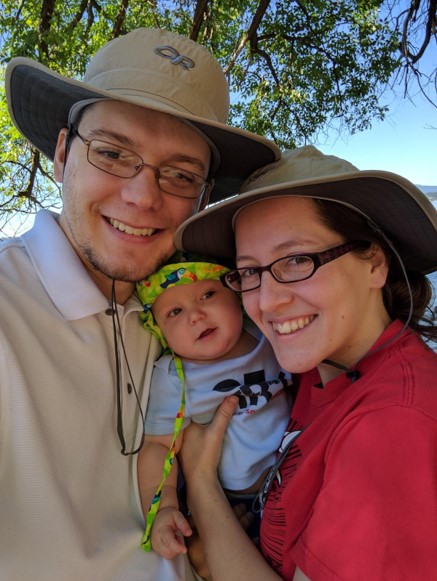Why is having kids, moving out of the city, and following an unusual path a waste?

"She's worried you'll waste your degree."
My friend (let's call her Anna) relays this message to me as coming from another friend, but I can tell from her tone of voice that she's clearly worrying about the same potential waste. That makes the question doubly irritating. As if pretending to be merely the messenger could disguise the passive-aggressive way of questioning my life decisions. Decisions which, I might add, I'm pretty darn happy with.
The primary decisions in question are these:
First, I had a baby in grad school. I'm growing another tiny human now, in fact—I gave my defense talk while 6 month pregnant! Evidently, instead of seeing this as a badass feat of time management and life balance, Anna took it as ultra-clear proof that childbearing, not science, is my ultimate goal in life, since the two clearly aren't compatible. As if there aren't amazing examples to the contrary, like two of my committee members, who are inspiring women with three kids apiece.
Second, while finishing my last semester of writing, I moved to a town that Anna has frequently referred to as "the middle of nowhere," despite it having a regional population in the 200,000's, as well as a branch of a state university. Maybe she thinks "middle of nowhere" really refers to how far you are from a large number of appropriately ethnic restaurants? Being out west, up in the skinny part of Idaho with the abundance of beautiful clear lakes, pine-filled mountainsides, and a peaceful pace of life has been wonderful. Less stressful. It's a nice place for writing, and a nice place for families.
And then, there's the somewhat non-traditional plan for my post-MIT life. It's not perfectly mapped out, but it will certainly involve my husband and I homeschooling/unschooling our kids, coming up with flexible work arrangements so we can travel more and spend more time with family, and having a high degree of independence. My husband's current software-as-a-service company is a good start. We have some other ideas, too—after all, leaving MIT and Boston doesn't mean I'm leaving research or a creative, intellectual life.
Given those decisions, well, of course! Getting a degree is a waste! If my life plan does not follow the norm, if it does not include seeking out a high-paying industry job in a big city or a prestigious professorship at an R1 school while placing my kids in daycare and coercive schooling for upwards of 14000 hours, then of course, I'm wasting my degree.
But isn't a big part of the point of grad school learning? Learning about project management. Developing writing skills. Doing independent research. Asking interesting questions. Pursuing ideas. Managing time, balancing multiple commitments, and being involved in many activities I care about. Whether or not I then use those skills to pursue any of the most common paths out of grad school isn't the point. What I learned will still serve me well in future endeavors—writing papers and essays, consulting, hiking in the mountains, self-funding our startups, blogging, gardening, reading philosophy, advocating for self-directed education, or spending time with the people who really matter to me.
The implicit assumption Anna had that "wasting my degree" is even possible is, frankly, an insult. She identifies as a feminist. Isn't feminism supposed to be about empowering and supporting women in making life choices that are right for them?
Grad school was one step that was right for me. Having kids I actually spent time with, moving out of the city, pursuing whatever creative, intellectual, maternal, or domestic activities I happen to want to do next...? Also right for me. Sorry to disappoint, Anna.
—
This article originally appeared on the MIT Graduate Student Blog, March 2019







